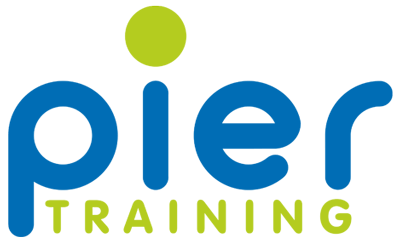COURSE
L4 Apprenticeship Standard for Junior Management Consultant
The Level 4 Junior Management Consultant Apprenticeship Standard is designed as an entry-level role in the Management Consulting profession. This is suitable for management consultants who provide business advice to public, private and not-for-profit organisations. Their work typically involves addressing specific challenges, such as business growth, improving efficiency, or restructuring. Some consultancies specialise in areas like writing proposals for new projects, driving organisational change, or workforce development, while others take a more generalist approach, working on a variety of projects. Consultants may spend time working on-site with clients, and work hours often vary depending on the project’s demands.
The role of a junior management consultant varies with each employer. They might be involved in conducting research, analysing and interpreting data or be responsible for organising the logistics of the project. As they develop and progress, they might be involved in contributing to report writing which uses statistical evidence to support recommendations and conclusions or support the creation of slide decks to deliver key messages to clients. Junior management consultants might also become more focused on a particular type of service offering (financial, strategic, operational, etc.) or industry (financial services, public sector, telecommunications etc.).
Job Roles suitable for this qualification
Examples of job roles this qualification is suitable for but not limited to are:
- Business Consultant
- Project Manager
- Business Advisor
- Continuity Manager
- Data Analyst
- Researcher
Entry Requirements
- Individual employers will identify entry requirements in terms of previous qualifications, training or other criteria.
- Apprentices without level 2 English and maths will need to achieve this level prior to taking the End-Point Assessment.
Duration
The qualification usually takes around 24 months (excl. 4 months EPA period). However, it is possible to complete earlier depending on the existing achievements and individual circumstances. This can be discussed with your tutor. The apprentice must spend at least 12 months on-programme and complete the required amount of off-the-job training in line with the apprenticeship funding rules.
Aims of this qualification
The aim of this qualification is to support the apprentice’s understanding of the 3 key areas covering the following Knowledge, Skills and Behaviours (KSBs):
| Knowledge | Skills | Behaviours |
|
|
|
|
|
|
|
|
|
|
|
|
|
||
|
||
|
||
|
On-Programme Learning/Delivery
On-programme assessment of the knowledge, skills and behaviours will lead to the final synoptic end-point assessment.
Apprentices will be allocated a qualified tutor to support the full completion of the apprenticeship and prepare them for the end-point assessment (sometimes 2 tutors will be required at different times for teaching different elements). The tutor will undertake engaging and interactive teaching, learning and support sessions with the apprentice on a regular basis (at least every 4-5 weeks), either remotely via Microsoft Teams or in the workplace if appropriate, to conduct teaching, learning and assessments. These will be planned with the apprentice and employer.
The tutor will manage a portfolio of evidence using an online electronic system called OneFile and give regular updates about progress. Apprentices can contact their tutor in between visits to discuss any aspect of their qualification and will be able to access their online portfolio 24/7.
Learning Outcomes
- Level 4 Junior Management Consultant Apprenticeship Standard
- Level 2 Functional Skills in English (if not exempt)
- Level 2 Functional Skills in maths (if not exempt)
Assessment Gateway
Before the apprentice is adjudged ready to undertake the end-point assessment by their employer and training provider, they will need to:
- receive confirmation from the employer that the apprentice is deemed to be working at or above the level set out in the apprenticeship standard and ready to undertake the EPA
- confirm that they are ready to take the EPA
- achieve Level 2 in English and maths Functional Skills (if not exempt)
- complete a portfolio of evidence
- complete a reflective journal
The purpose of the end-point assessment is to test (in a synoptic way) the knowledge, skills and behaviours of the apprentice as set out in the apprenticeship standard.
The end-point assessment:
- provides apprentices with a showcase opportunity to provide oral and documentary evidence of their knowledge, skills and behaviours developed throughout the apprenticeship.
- enables the independent assessor to assess the skills and behaviours of the apprentice by observing the apprentice in the course of their normal work.
- tests the knowledge acquired by the apprentice throughout the apprenticeship.
End-Point Assessment
An end-point assessment will be conducted by an approved independent End-Point Assessment Organisation (EPAO) listed on the Apprenticeship Provider and Assessment Register (APAR).
The end-point assessment will comprise two assessments. All assessments must be individually passed for the apprentice to be deemed competent:
- Reflective Portfolio:
Grading for Reflective Portfolio: Pass/Distinction
- Presentation and Interview:
The interview, lasting 40 minutes, is a structured discussion between the apprentice and the panel, using a set of criteria and a set of typical questions developed by the assessment organisation. It will focus on the reflective portfolio and presentation and how the apprentice has performed during the apprenticeship.
Grading for Presentation and Interview: Pass/Distinction
Progression routes:
Upon completion of the programme, an apprentice might specialise in a particular type of consultancy or industry or remain more generalist. The skills that are developed often lead to employment in organisations within a certain industry, while some consultants who are established go on to run their own consultancy practices.
If you have already discussed joining a cohort with Pier Training, please click here to apply for this course. A Pier Training representative will contact you to discuss the next steps of your enrolment.
For new enquiries please submit your request here and a representative from Pier Training will contact you shortly.
